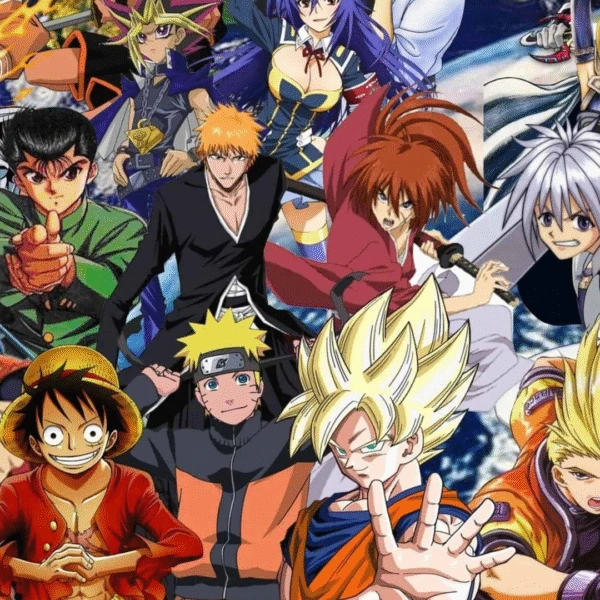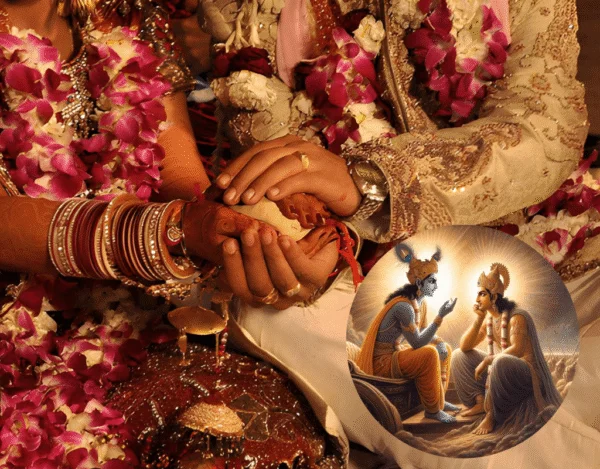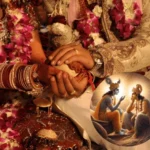Now Reading: Timeless Lessons: 1 Iconic Reply By Lucky Ali And His Enduring Human Spirit
-
01
Timeless Lessons: 1 Iconic Reply By Lucky Ali And His Enduring Human Spirit
Timeless Lessons: 1 Iconic Reply By Lucky Ali And His Enduring Human Spirit
Explore Lucky Ali’s authentic journey. Discover the powerful human spirit behind his iconic reply and the timeless lessons his life offers.
Have you ever met someone who simply dances to their own rhythm? Someone who truly, truly lives and breathes authenticity in a world that’s all about faking it ’til you make it? That, my friend, is Lucky Ali for you.
All of us, if we’re being honest, know him as the guy with that totally one-of-a-kind, gravelly voice from the late 90s. The one who gave us those songs that are just timeless.

In a time when celebrity appears so manufactured, when every last step is rehearsed, and every shot is coiffed to a high polish, an actual, honest-to-goodness artist such as Lucky Ali is like the discovery of hidden treasure. It simply makes one wonder, don’t you think?
How many times do we actually get to see a public persona just. be themselves? Lucky Ali is that rough diamond. He’s the enigmatic heart who provided us with “O Sanam” and “Ek Pal Ka Jeena,” and he’s never taken the conventional route of fame, rather choosing a path of humility and artistic virtue.
Lucky Ali’s own take on the world was in the news recently, not for a new song (as much as we always hope!), but thanks to an online exchange.
And yet, in that one simple moment, the incredible depth of his character and his timeless message of unity just shone through. This isn’t just an article about a singer; it’s a deep dive into the absolutely fascinating story of Lucky Ali’s life and career.
We’re going to explore how his amazing journey, deeply rooted in real experiences and a rock-solid moral compass, allowed him to build a legacy that simply refuses to fade.
It’s a story that still offers immense value to anyone who loves his music, and his spirit. When the Camera Called: A Child Actor Who Felt Like a Guest
Imagine waking up to Bollywood in your own backyard. I mean it. That was the life of young Maqsood. His dad was the legendary Indian comedian and director Mehmood, so waking up to cameras, film crews, and stars was just. normal. Can you even imagine?
His earliest tastes of fame came when he was a kid, working on movies.
You might even know him! He appeared in films like “Kuwara Baap” (1974), where he played out a younger version of his real father. Then there was “Chhote Nawab” (1976), and the occasional odd ones here and there like “Ginni Aur Johny” (1976).
He’d memorize his dialogues, flash a smile in front of the lens, be a good boy on location. But even then, something just never quite worked.
Acting, he’d go on to show us later with his career choices, just never quite fit him right. It was like someone else’s jacket, something he wore more than a second skin.
The glamour, the scripts, the crazy sets – yeah, it was where he earned his money, but it wasn’t something he was truly born to do. Even as a kid, deep inside himself, Maqsood knew that this wasn’t his journey of choice forever.
But music? Ah, music was something else. It kept drawing him, promising something more tangible, a way in which his own voice, in the very best sense of the word, could actually, actually live.
This early exposure to the grueling, oftentimes stifling world of Bollywood, seeing stardom up close, must have had its impact.
It probably gave him a one-man perspective, a kind of wise remove from the more superficial elements of the industry. It was not merely a phase of childhood; it was necessary preparation.
It lay the groundwork for a career that would not be about seeking fame, but about actual, quasi-spiritual, love for what he did. It’s much of why his humble path is as mythic as his beloved songs.

The Great Exchange: Trading Scripts for Soulful Struts and Finding His Voice
After that brief fling with child acting, Lucky Ali did indeed leave those movie sets. Not some histrionic, sudden departure, but a slow, very deliberate drift towards what truly resonated with him on a deeper level.
He began a musical journey of self-discovery. He explored melody, played with words, and waited patiently, painstakingly, to find out that unique voice we adore.
This peaceful, unhurried time was absolutely vital for him.
He cultivated those raw, unpolished but really haunting and authentic voices that would sooner or later captivate the whole country.
His sound? It was different, dare I say, and courageously so. It actively avoided the flashy approach and dense production that you heard elsewhere.
Instead, it was all about raw emotion pouring out through deceptively plain, generally sorrowful songs. Not only did it sound great; it felt authentic.
By 1997, having spent years quietly developing his talent in obscurity, he finally felt ready to share the world with his musical essence.
His debut album, “Sunoh” (sometimes you’ll see it spelled “Suno”), blew into the Indian music scene like a huge breath of fresh air, a total surprise and a highly appreciated one.
It really stirred up what people assumed. In the midst of all that smooth pop and those huge Bollywood movie soundtrack hits, Lucky Ali offered something profoundly alternative: a voice that sounded lived-in, true, and just so blasted relatable. And boy, did they bond!
Audiences from every direction could immediately tell that down-to-earth sincerity. They were seeing somebody genuine in a world that was so frequently flooded with manufactured artists.
This unparalleled connection soon propelled “Sunoh” into record-breaking commercial success and critical acclaim. Hits like the iconic “O Sanam,” the title track of the album, and the contemplative “Teri Awaaz” were not only chart-toppers; they quickly became anthems for a generation.
They eternally cemented Lucky Ali’s status not only as a singer, but as a thought-provoking storyteller whose melodies echoed deep within India’s collective consciousness.
When Bollywood Couldn’t Resist: “Ek Pal Ka Jeena” and the Big Stage
The collosal, irrepressible triumph of “Sunoh” made Bollywood just unable to overlook him anymore. His distinctive voice, which was once a prized and familiar sound, finally caught the attention of the largest music directors and film producers.
When the epic millennium-milestone romance drama “Kaho Naa. Pyaar Hai” (2000) was under production, whom did they invite over? Lucky Ali.
He lent his inimitable vocal tone to two seminal tracks that would forever be linked to his artistic persona. The catchy, nigh-philosophical dance number “Ek Pal Ka Jeena” and the soulful, introspective “Na Tum Jaano Na Hum” were instant classics. You do know them, don’t you?
These tunes not only charted; they blew up on radio stations everywhere. They were everywhere. In one night, it wasn’t just music lovers, but ordinary folk – from autorickshaw drivers whistling his tunes to university students trying to replicate his famous shrug – who were caught in the whirlwind of Lucky Ali mania.
Music award juries were writing his name in awards soon, accepting the sheer sweep.
It was in 2001 that he took the stage, holding a coveted Filmfare Award for Best Male Playback Singer. It was an awesomely well-earned victory, recognizing how much “Ek Pal Ka Jeena” had touched listeners across the globe.
With his own unique style of singing, he brought such a new flavor to Bollywood, a definite reprieve from the truer, more classic voices we were used to.
Soon after, “Aa Bhi Jaa” from the winning film “Sur” (2002), where he even sang, nearly brought him a second Filmfare.
But here’s the catch: despite all these such high awards and all the glamour of Bollywood offers, Lucky never ever appeared too busy with racking up film credentials.
His voice also found its way into films occasionally – “Bachna Ae Haseeno” (2008), “Anjaana Anjaani” (2010), and even the introspective Imtiaz Ali’s “Tamasha” (2015) with the hauntingly lovely “Safarnama.”
But these were always choosy assignments, never a full-time involvement in the tricky playback world. This prudent approach only served to enhance his reputation: he was an artist who cared about nothing but quality and personal affinity and never about mere quantity or marketplace pressure.
He taught us that it’s smarter to select than to do more.
The Art of Disappearing: Why Stepping Back Was His Boldest Move
That’s the interesting part, the one that actually makes Lucky Ali unique and makes him “high-value” as a personality: his outrageously original, bordering on the subversive, approach to fame itself. Think about it.
Most musicians, having achieved this level of success, would ride that momentum into constant visibility, endless marketing tours, and trying to be everywhere at once.
But Lucky Ali? He went down a completely, amazingly different path.
To him, fame actually seemed almost to have been an accident – something that just happened, even a bit of weight, from having had to share his beautiful music, rather than something that he actively sought.
He notoriously, and very self-consciously, distanced himself from the crazy whirling of promotions, the bright but often empty sparkle of awards ceremonies, and the nagging intrusions of media attention that mark the lives of most superstars.
He simply preferred calmer surroundings.

Often he’d choose to live outside the busy, hyper-connected urban hubs, instead opting for a tranquil existence in close proximity to nature or in pursuit of deep, specific passions that genuinely nurtured his soul.
And lo and behold? This thoughtful avoidance, remarkably, did not repel his fans. Instead, it simply added to their relationship with him.
His sporadic, impromptu appearances online, where he would pose a pensive comment or a glimpse into his existence, were highly anticipated moments.
And then, he’d most likely vanish again into his quiet realm, having us wait in suspense. This calculated withdrawal from the relentless buzz of celebrity culture rendered him a fascinating enigma.
It kindled a unique mixture of admiration and profound interest within his huge fan base. It cemented his public image as an artist supported totally by pure passion, a steadfast commitment to what he does, and inner tranquility.
His life became a powerful affirmation of the doctrine that success is not always a matter of how loudly one applauds, but by the soft resonance of living your true self. It is a lesson that we can all learn from.
The Viral Moment: Religion, Humankind, and an Uncomplicated “You Are My Brother”
Something unusual recently happened on the official Facebook page of Lucky Ali. It was the focal point of a larger, and sometimes extremely sensitive, debate about religious expression and tolerance in India.
It started with a deeply personal post from the artist, a statement of his religion: “I Love Mohammad PBUH” (Peace Be Upon Him), a common and respectful phrase in Islamic tradition.

What ensued, however, was a stark reflection of the often polarised and sometimes acrimonious tone of online discourse in contemporary India.
The comments section beneath his post quickly became a microcosm of the country’s diverse, and sometimes polarised, religious feelings. Comments came tumbling in. Some of them politely echoed his sentiment with “Allah Hu Akbar.”
His own status, inadvertently, created a hot debate among users of different religious backgrounds. It was a glimpse of a larger debate raging in society.
In such situations, where social media updates have the potential to become battlegrounds for fiery comments so easily, what does a celebrity do? They either step away entirely, take down the ‘controversial’ update, or release an extremely guarded, usually vague, statement.
But Lucky Ali, being his unorthodox self, did none of these-safe, popular actions.
Instead, with breathtaking graciousness and a deep belief in his own individuality, he responded to one specific commenter who wrote “Jai Shree Ram” with disarmingly simple and heartfelt profundity: “You are my brother.”

Four plain words. But those four words – without show, without preaching, without seeking to change anyone’s opinion – precisely illustrated his firm approach to both his music and his life.
It was a poignant, beautiful act of inner human kindness, worth ordinary humanity, fellowship, and respect for each other above any imagined religious difference.
Direct, deeply honest, and completely compassionate, his reply endeavored to build a bridge, not anachronistically inflate a gulf.
Screenshots of this classy but profoundly unifying conversation swept quickly across every social media platform.
Dozens of users praised his gracious, dignified, and profoundly unifying response to a potentially divisive moment. This viral conversation served to underscore his unique status as a unifying presence in an often-broken world.
It showed that his good nature and quiet intelligence appeal so much more than his musical notes, teaching a powerful lesson in respect and empathy for each other.
It was this, and not any of his number one hits, that made him an increasingly worthy public figure whose influence goes beyond entertainment to the realm of social consciousness. It was an honorable moment, by an honorable man, that taught us all a lesson.
The Magic Continues: A Legacy That Won’t Fade
Though Lucky Ali has nicely stepped away from the intensity of mainstream music production and album releases, he most definitely hasn’t stepped away from performing. His true, enduring passion is to share with listeners the raw, unbridled power of live music.
That’s why he tours widely across the globe, especially across the US and Middle East, where he has a huge, phenomenally devoted fan base.
His performances are something really special because they bring people of all ages together. You have people with greying hair who have been his fans since the 90s, recalling their teenage years and their life soundtracks.
And standing alongside them, you will also have young, energetic college students who just discovered his older songs on streaming and typically introduced to him by their parents! It is beautiful to see. He actually brings generations together.
Video recordings of these live performances are shared relentlessly, a reflection of his ongoing popularity.
There is something so magical and so heart-wrenching to see him today – older, wiser, with life’s depth further written on his face.
And yet, continues to perform those well-known, much-beloved songs with the same raw, honest voice and emotional candor that made them so unforgettable all those years ago.
His voice, more matured with age, has that unique texture that surpasses technical brilliance and goes straight to your heart, every time.
In today’s musical landscape, where autotune tends to be overwhelming and image tends to prevail over honest substance, Lucky Ali is a potent, much-needed reminder.
He reminds us that sometimes the most compelling and enduring music is not created by digital trickery or high-powered promotion but by simple truth and genuine honesty. It’s a welcome idea, isn’t it?
His legacy is built on fad hit numbers or fleeting streaming counts. It’s built on composing songs that continue to speak directly to people’s hearts, forging deep, lasting emotional connections well past the recording studio lights dimming and the latest trends having faded into oblivion. He’s built music that lasts.
Perhaps that is precisely why, despite years of being out of the charts and off the front pages daily, Lucky Ali remains an irreplacable and endearing presence in India’s collective musical memory.
He is much more than a singer; he is a profound storyteller, a reflective thinker, and actual cultural icon whose music has become irreversible benchmarks in the lives of millions.
His life, marked by unbreakable artistic principle, a steady sense of inner peace, and an unmistakable commitment to being as sincere as humanly possible, is a much-needed and cleansing counter-narrative to the sometimes-hysterical pursuit of fame.
His recent “You are my brother” statement wasn’t an instant; it was a beautiful, crystal-clear demonstration of the artist the world sees and loves: an unassuming man, full of humanity, whose music and behavior continually overcome divisions, create links, and remind us all of the immense power of true human compassion.
His worth isn’t in his work, but in the long-lasting message of his genuinely extraordinary life. And that, I think we can all agree, is a legacy to be cherished.
Also read: The #1 Truth: RJ Mahvash’s Powerful Journey Beyond Gossip And Glamour – ParsoTak.in





















